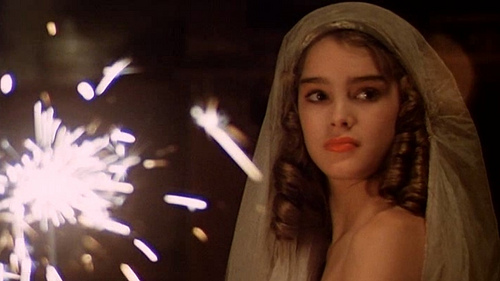
Louis Malle directs Brooke Shields, Keith Carradine and Susan Sarandon in this period drama about a child growing up in a New Orleans cathouse, matter of factly becoming a prostitute.
A well made film, full of convincing visual detail and relaxed natural performances. Obviously the subject matter is troubling. A pubescent girl embracing life as a whore for that is all she knows. It is done casually, with little fanfare. Any nudity with the 12 year old Shields is shown away from a sexualised context (yet there is then unnecessary nudity) and during the first act her corruption is so subtly played out so that you fool yourself into thinking it won’t happen… and then later that it has but we will not witness it. Eventually she is sold off into auction, happily. Malle treads a high wire act, never showing his hand. His assessment of the small microcosm of the cathouse as a friendly, warm environment where residents once they are of age want to earn their keep is well essayed. The moral issues of this are not really explored, the emotional issues are presented from the johns perspective. Most are presented as lucidious but polite and respectful, any kink or rough proclivities seen as part of the menu on offer, for behind closed doors. Carradine’s photographer named Bellocq makes the mistake of falling for the child sex worker and this is seen as the transgression… not his desire to fuck the underage human, but in wanting to form a lasting, domestic relationship with her. The only directorial judgment explicitly made is it is wrong to apply adult emotions to our eponymous protagonist. As someone who sees the exploitation and destructiveness of selling a child into sex slavery (should I really need to type that), I can take Pretty Baby as a non-manipulative recreation of a case that agrees with my viewpoint. But I could also see how a paedophile could view Pretty Baby as a titillation or even justification of their perversion. Operating within a narrow margin, managing to be both cinematic exploitation and sensitive exploration. A litmus test as to whether the viewer needs ominous music, tragic third act consequences or tearful Oscar speeches to know whether the situation they are being presented with is “wrong”. Malle cleverly and provocatively presents everything from the child’s point of view, she knows no other world than this, and from that limited perspective sees no issue with it. And within that context he creates a film of strong cinematic technique, surprising affection and good humour.
7